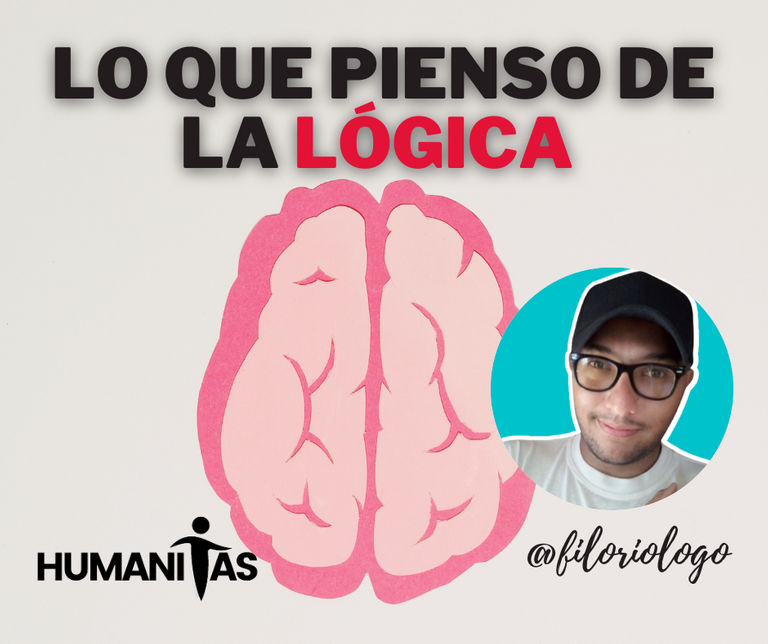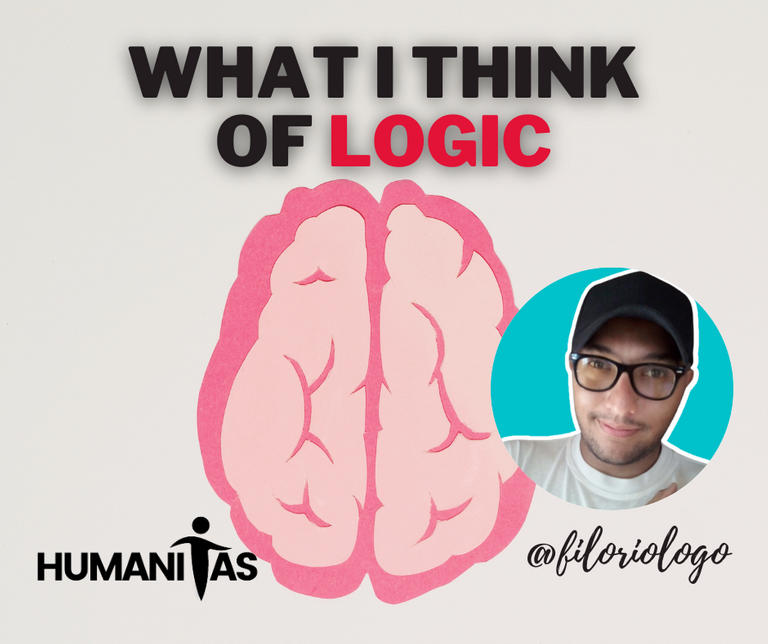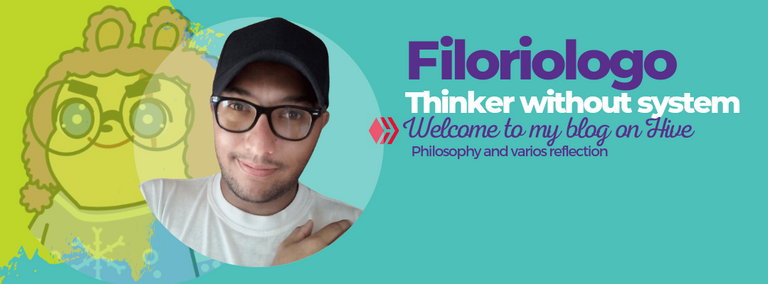Lo que pienso de la lógica
Pensar en la lógica me hace remontar a mi primer año de filosofía, cuando estudié por primera vez lógica de la mano de una increíble docente, la profesora Corina Yoris, creo que mi amor por esta rama de la filosofía se debe a la pasión y el modo en el que ella transmitía su conocimiento. Cuando comencé a estudiar filosofía pensé que no vería nada relacionado con las matemáticas y resulta que estudiar lógica es como estudiar matemáticas, se trata de aprender a pensar basándose en un método, de hecho podríamos definir a la lógica como la ciencia del pensamiento correcto.

Lo primero que viene a mi mente cuando pienso en la lógica es en las funciones del lenguaje, ya que en principio el pensar está supeditado al lenguaje y la lógica básicamente intenta ordenar el pensamiento y el lenguaje. Así que podemos pensar en tres funciones cuando pensamos en el lenguaje.
Función expresiva.
Función directiva.
Función informativa.
Hablemos rápidamente de cada función, la expresiva se usa cuando deseamos comunicar una emoción o un sentimiento. La función directiva, su nombre lo dice, se usa para dar órdenes, es decir, modificar o impedir una conducta. Y la función informativa se usa para enunciar algo, puede ser acerca de hechos, o quizá deseamos describir una situación, algún acontecimiento o un proceso.
En este última función del lenguaje es donde quizá la lógica es más evidente, ya que de todo enunciado es preciso preguntarnos por su veracidad o falsedad, y precisamente un aspecto de la lógica intenta dilucidar cuando algo es verdadero o no.
De modo que cuando nos encontramos frente a una serie de enunciados, lo que tenemos frente es un razonamiento y todo razonamiento está compuesto por premisas y una conclusión, la lógica es la herramienta que nos va ayudar a que utilicemos nuestro razonamiento de manera efectiva, sin usar falacias o argumentos que no son válidos. Es por ello que como lo he leído en otras publicaciones sobre la lógica, parece que el sentido común es en realidad lo menos común.
La lógica es lo que nos va a permitir proceder de manera clara y distinta lingüísticamente hablando. Voy a poner un ejemplo bastante obvio, voy a escribir a continuación un par de enunciados.
"Llueve porque me he tomado una taza de té."
"Llueve, porque el clima ha estado nublado."
Claramente podemos entender cuál razonamiento es un razonamiento válido. Creo que la lógica nos ayuda a separarnos de comunicarnos desde creencias, opiniones o mitos. Pensar y comunicarnos desde la lógica nos hace más efectivos en la comunicación.
Es cierto que no somos seres exclusivamente lógicos, también, sentimos, pero cuando hablamos de sentimientos, la lógica queda en otro plano, ya que la función del lenguaje es otra, buscamos expresar y quizá eso no puede hacernos pensar en su veracidad o falsedad.
Intento ser siempre lo más lógico posible cuando trato de conducir una conversación que no tiene que ver con los sentimientos. Está reflexión en torno a la lógica me hace pensar que debería ser una materia a estudiar desde la primaria, aunque la matemática puede ayudar en el construir un pensamiento lógico, la lógica lo hace de manera más directa, porque su enfoque es precisamente eso.
En este momento podríamos hablar de las falacias o los enunciados que no son válidos o verdaderos. Ya que se ubican o parten desde varios sesgos. Por ello que la misión de la lógica desde mi perspectiva es que descubramos los sesgos en nuestro ejercicio de comunicarnos y poder tener una comunicación más efectiva.
Gracias por tu tiempo…

ENGLISH
What I think of logic
Thinking about logic takes me back to my first year of philosophy, when I first studied logic under the guidance of an incredible teacher, Professor Corina Yoris, I think my love for this branch of philosophy is due to the passion and the way she transmitted her knowledge. When I started studying philosophy I thought I would not see anything related to mathematics and it turns out that studying logic is like studying mathematics, it is about learning to think based on a method, in fact we could define logic as the science of correct thinking.

The first thing that comes to my mind when I think of logic is the functions of language, since in principle thinking is subordinated to language and logic basically tries to order thought and language. So we can think of three functions when we think of language.
Expressive function.
Directive function.
Informative function.
Let's quickly talk about each function, the expressive function is used when we want to communicate an emotion or a feeling. The directive function, as the name implies, is used to give orders, that is, to modify or prevent a behavior. And the informative function is used to state something, it can be about facts, or perhaps we want to describe a situation, an event or a process.
It is perhaps in this last function of language that logic is most evident, since it is necessary to ask about the truth or falsity of every statement, and precisely one aspect of logic tries to elucidate when something is true or not.
So when we are faced with a series of statements, what we have in front of us is a reasoning and all reasoning is composed of premises and a conclusion, logic is the tool that will help us to use our reasoning effectively, without using fallacies or arguments that are not valid. That is why, as I have read in other publications on logic, it seems that common sense is actually the least common.
Logic is what will allow us to proceed in a clear and linguistically distinct manner. I'm going to give a fairly obvious example, I'm going to write below a couple of statements.
"It's raining because I've had a cup of tea."
"It's raining, because the weather has been cloudy."
Clearly we can understand which reasoning is valid reasoning. I believe that logic helps us separate ourselves from communicating from beliefs, opinions or myths. Thinking and communicating from logic makes us more effective in communication.
It is true that we are not exclusively logical beings, we also feel, but when we talk about feelings, logic is on another plane, since the function of language is different, we seek to express and perhaps that cannot make us think about its veracity or falsity.
I always try to be as logical as possible when I try to conduct a conversation that has nothing to do with feelings. This reflection on logic makes me think that it should be a subject to study from elementary school, although mathematics can help in building a logical thinking, logic does it more directly, because its focus is precisely that.
At this point we could talk about fallacies or statements that are not valid or true. Since they are located or start from various biases. So the mission of logic from my perspective is that we discover the biases in our exercise of communicating and to be able to have a more effective communication.
Thank you for your time...

Otras|Other RRSS

